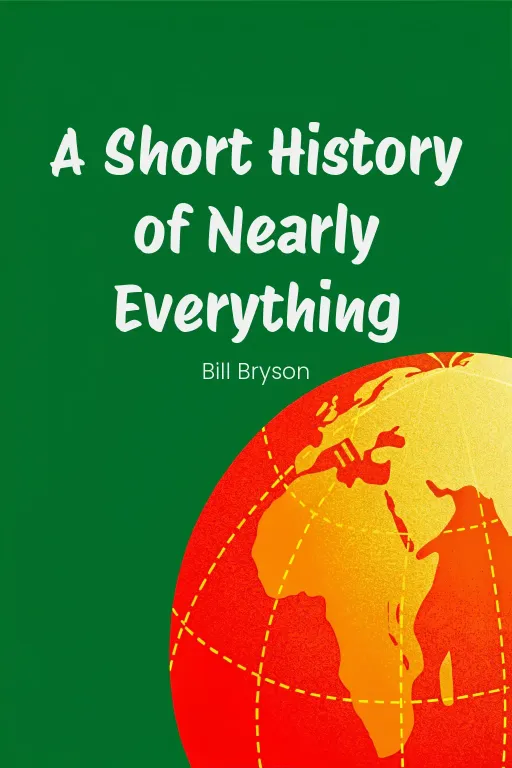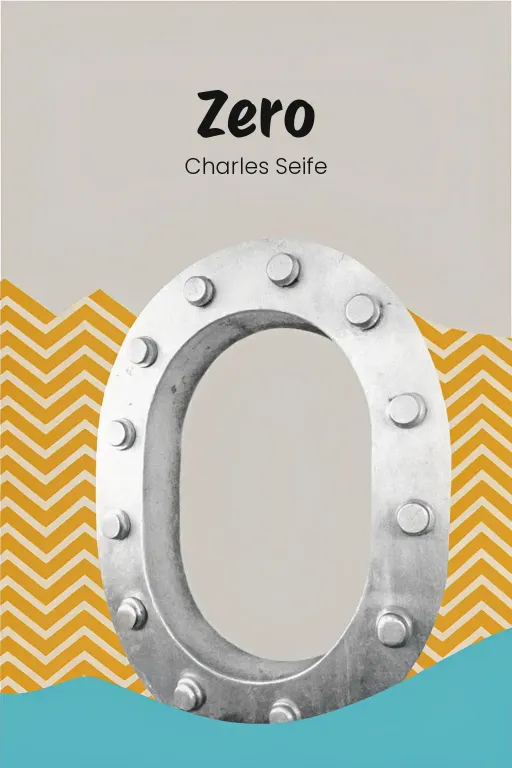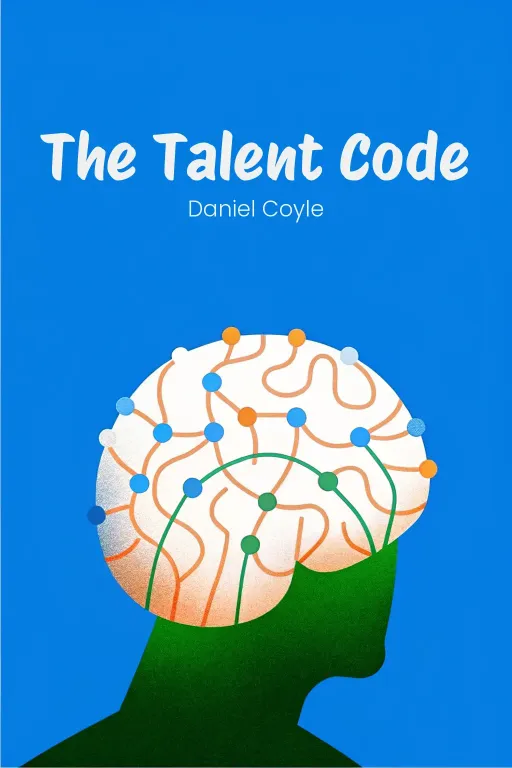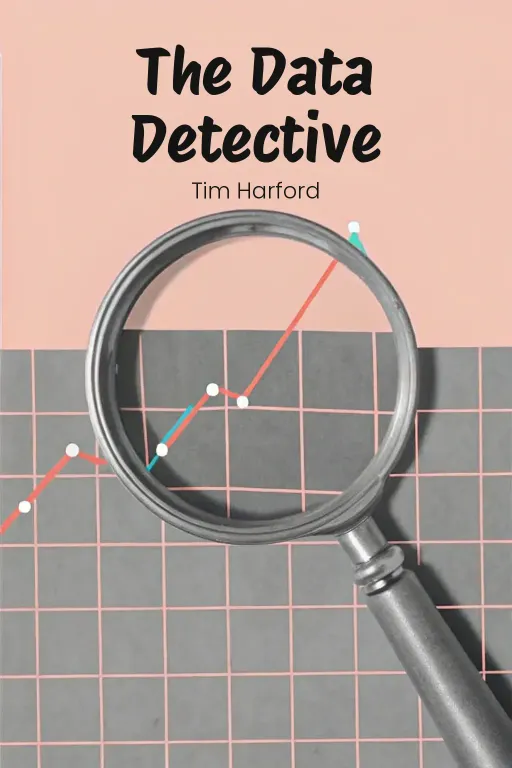
Zero: Void or the Universe's Code?
Podcast by Wired In with Josh and Drew
The Biography of a Dangerous Idea
Zero: Void or the Universe's Code?
Part 1
Josh: Hey everyone, welcome back! Today we're talking about something tiny, seemingly insignificant even, but it was once feared, banned, and declared dangerous. I’m talking about zero. Drew: Ah, zero. The mathematical enigma. A number that's not a number, a void that somehow holds the universe together. Honestly, it sounds more like a philosophical rabbit hole than a mathematical breakthrough. Josh: Exactly! But it’s a breakthrough that’s shaped everything, from ancient counting to how we understand the cosmos. Charles Seife’s Zero: The Biography of a Dangerous Idea takes us on a journey, exploring how zero helped humanity grapple with huge ideas like infinity, existence, and the very nature of reality. Drew: With a healthy dose of drama, of course. I mean, Aristotle wasn't exactly thrilled about this concept, right? Western thinkers resisted it fiercely, while mathematicians in places like India and the Islamic world were making zero a superstar. Talk about a cultural clash. Josh: Absolutely! So, here’s the plan for today's podcast. First, we'll explore where zero came from and how it went from being culturally rejected to universally accepted. Then, we'll dive into the philosophical and theological debates it sparked. Why were some people so threatened by something that, well, is basically nothing? And finally, we’ll look at zero's role in modern science. You know, black holes, the Big Bang, and its connections to some of the universe's greatest mysteries. Drew: So, whether you see zero as a mathematical hero or a total mind-bender, we've got a lot to unpack. Let's dive in, shall we?
The Historical Journey of Zero
Part 2
Josh: So, let's rewind all the way back to the beginning, to ancient civilizations and their somewhat awkward dance with zero. It's pretty interesting. Think about the Babylonians; they were using placeholders, right? They needed something to mark empty spots in their base-60 system. But here's the thing, they weren't quite seeing it as "zero," were they? It was more of a handy tool than a real understanding of what zero is. Drew: Exactly, it's like they stumbled upon a clever hack without fully grasping the underlying idea. The placeholder was just there to do a job. It was like saying, "Okay, nothing goes here," but nobody really dug in to ask, "But what “is” this 'nothing' exactly?" More like bookkeeping, less like philosophy. And speaking of placeholders, didn't the Mayans also have something similar going on? Josh: They did indeed! The Maya were using something like zero in their calendar system way back in the 4th century CE. They had that shell-like symbol to represent zero, which is how they built those incredibly precise long counts for their calendar. But, just like the Babylonians, zero didn't break free from the calendar or become a fully-fledged number in their overall numerical systems. It seems like civilization kept getting a glimpse of zero, but nobody was quite ready to fully embrace it. Drew: And then we get to the Western world, which didn't just ignore the glimpse, but boarded up the windows too. Aristotle's influence really casts a long shadow here, doesn't it? His whole philosophical bent was suspicion towards the void, equating nothingness with chaos and danger. Josh: Absolutely. Aristotle’s “horror vacui,” that fear of the vacuum, shaped the West’s resistance to zero for centuries. He just couldn't wrap his head around the idea of nothingness, of a void. He, and many other Greek thinkers, saw the universe as inherently ordered and structured, and nothingness was a direct threat to that order. It's almost ironic, isn't it? A civilization that was so advanced in geometry and logic just completely stalled when it came to accepting zero. Drew: Plus, you've got that classic Pythagorean line: "Nothing comes from nothing." It's like they were daring anyone to challenge that notion. And yet, while the West was giving zero the cold shoulder, the East was busy embracing it. India didn't see nothingness as something to be scared of. They viewed it as a space full of potential. What do you think caused that difference in perspective? Josh: It really boils down to their cultural and philosophical worldviews. In Hinduism and Buddhism, the void wasn't seen as chaotic or dangerous, it was seen as transformative. Non-existence held the seed of creation. Look at the Rig Veda, for example. It explicitly links non-being to being. That kind of openness created the perfect environment for Indian mathematicians like Brahmagupta to really explore the idea of zero. Drew: Ah, Brahmagupta. By the 7th century, he wasn’t just using zero as a placeholder. He started giving it rules, making it a key player in the mathematical game. What were some of his big contributions again? Josh: Brahmagupta really nailed down how zero behaves in mathematical operations. He stated that subtracting a number from itself results in zero—something that we take for granted now, but back then, it was revolutionary. He also worked with negative numbers, which the Greeks hadn't even considered. Now, the tricky part was division by zero. Brahmagupta recognized that it was “undefined," and even today, dividing by zero leads to paradoxes that can break mathematical systems. Drew: So, here's Brahmagupta, formalizing these concepts that Western mathematicians wouldn't catch up to for centuries. If zero was such a game-changer, why didn't its influence spread more quickly? Josh: Well, first off, you had the cultural inertia, especially in the West. But another factor was geography itself—the Indian numeral system with zero didn't just beam itself over to Europe. It spread bit by bit along trade routes and through intellectual exchange. The Islamic world played a crucial role in that, acting as a bridge between Indian mathematics and the later European Renaissance. Drew: Which leads us to one of my favorite moments in the story of zero: Fibonacci. This guy had the nerve to say, "Hey, these Roman numerals are a mess. Let me show you something way better." His Liber Abaci really shook things up, didn't it? Josh: Absolutely. Fibonacci’s travels in the Islamic world introduced him to the Hindu-Arabic numeral system, and he immediately saw how much better it was for calculations. His book didn't just advocate for zero and positional notation; it offered real-world examples that merchants and bankers could actually use—things like conversions, interest rates, profits, and losses. It was a system perfectly suited for the growing commerce in medieval Europe. Drew: And isn't that the ultimate irony? For all the philosophical turmoil zero caused, what finally made it acceptable in the West wasn't some high-minded debate, but practical application. Merchants needed it to keep track of their finances. Zero became a practical necessity before it could be an intellectual triumph. Josh: Exactly. And even then, zero wasn’t immediately embraced, even with Fibonacci’s push. It's easy to forget how much theological resistance it faced, particularly in Europe. People associated the void with nihilism, even heresy. How could “nothing” coexist with the divine order of creation? Drew: Trust theology to throw a wrench in the works! What’s amazing is that, once zero cleared those theological hurdles, it didn't just integrate into Western mathematics, it took over. By the time you get to modern science, zero is everywhere, from quantum mechanics to the calculus that lets us describe change and motion. But it’s still full of paradoxes. Like you were saying, divide by zero, and watch the world—or at least the equations—fall apart. Josh: Which, in a way, is the perfect metaphor for zero's entire history. It’s an idea that's constantly challenging us, shaking up our assumptions, and forcing us to re-evaluate the world, and sometimes, even ourselves.
Philosophical and Theological Debates
Part 3
Josh: So, from its, shall we say, “contentious” beginnings, zero’s journey takes us to some pretty deep philosophical and theological territory. It's such a compelling turning point, isn’t it? I mean, what started as a practical tool suddenly became this conceptual lightning rod for debates about existence, reality, and even the divine. Drew: Exactly! It’s kind of wild when you think about it, right? How a single, unassuming symbol—we're literally talking about nothing—could stir up such intellectual and theological chaos. So, maybe we should unpack those debates a bit? We've already talked about zero's practical evolution; now it's time to tackle its impact on philosophy and theology. What’s our, uh, game plan here? Josh: Let's go thematic. First, we can explore the ancient Greek rejection of zero—especially that whole fear of the void thing. Then, we’ll discuss how the Renaissance brought some theological tensions into play as zero sort of sneaked its way into Western thought. And finally, we’ll dive into how philosophers like Descartes and Pascal wrestled with zero, kind of tying it all to infinity, God, and the human experience. Drew: Sounds good. So let's start with Greece. Ancient Western philosophy—Pythagoras, Aristotle—why were they so, uh... freaked out by zero? Josh: Well, in a word? Order. Greek philosophy was obsessed with structure and harmony. Think about the Pythagoreans, for example. For them, numbers weren’t just tools for arithmetic; they were, like, the essence of reality itself, you know? Like the underlying code of the cosmos. They had this almost mystical belief—what they called the “harmony of spheres”—in which celestial bodies moved in mathematically perfect proportions, creating cosmic order. Drew: Right, they basically turned math into music. A neat little melody of numbers holding the universe together. And zero? That was a dissonant note they couldn’t stand. It didn’t fit their worldview at all. Josh: Exactly! Zero implies a lack of something—an absence—and the Pythagoreans believed numbers were fundamentally geometric. How could a shape have zero dimensions? It was a contradiction that threatened their entire framework of reality. If you admit zero, boom, the sacred numerical harmony unravels. The fear wasn’t just abstract; it was existential, you know? Drew: And then Aristotle comes along to, what, double down on that rejection? His infamous declaration that “nature abhors a vacuum” seems almost tailor-made to keep zero out of Greek thought. How did he actually rationalize this, exactly? Josh: Aristotle saw the universe as finite and purposeful, where everything had a form and substance. The void—the idea of nothing existing—was utterly irrational to him. If a vacuum existed, how would motion work in it? Without something to "push against," he argued, movement couldn’t happen. And since zero symbolized absence or void, it fundamentally clashed with his idea of a perfectly filled and orderly cosmos. Drew: It’s almost… almost understandable in a pre-scientific world. They were looking at existence as a kind of unbroken chain, where every link mattered. Throwing in nothingness would basically snap that chain. Even so, their stonewalling of zero as a concept slowed progress for centuries. But then you have the Renaissance, and suddenly Europe has to deal with it again. And the resistance doesn’t stop, it just gets… spiritual. Josh: Exactly. When zero re-entered through the Hindu-Arabic numeral system during the Renaissance, it wasn’t just math that was at stake. Western theology had to grapple with its implications, particularly the connection between zero and nothingness. The big sticking point was the Christian doctrine of creation ex nihilo—creation out of nothing. Drew: Wait. Shouldn’t that work in zero’s favor? If God created everything from nothing, wouldn’t zero naturally symbolize that void? Josh: You'd think so! But here’s the complication: while theologians accepted the idea of a metaphysical void that preceded creation, they equated material nothingness with chaos. And chaos was a problem because it undermined the idea of an ordered, divine cosmos. The fear was that allowing a mathematical representation of nothing might somehow dilute the divine authority behind existence. Zero wasn't just math—it was a philosophical and theological threat. Drew: So because zero could represent a "lack" or emptiness, it was seen as almost heretical, like a rejection of God's work. You’ve got to love how something as abstract as a numeral gets tied to existential dread. And yet, alongside this resistance, people still needed zero for practical reasons. Navigation, accounting—it was too useful to ignore forever. Josh: Right, which is why it starts gaining traction. But even after the Renaissance, philosophers were still wrestling with zero’s deeper implications. Which brings us to Descartes and Pascal: two fascinating figures who, in pretty different ways, tried to bridge the gap between zero, infinity, and theology. Drew: Descartes first. The definitive rationalist, right? How did he incorporate zero into his systems without, you know, losing sleep over it? Josh: Descartes addressed zero primarily through his Cartesian coordinate system, where zero marks the origin of a graph. Symbolically, this gave zero a kind of, um, functional clarity—it was central, stable, the point from which everything else revolved. But metaphysically, he wasn’t as settled. Descartes believed zero, as a representation of nothingness, could only be made comprehensible by contrasting it with infinity. And for him, infinity wasn’t just an abstract mathematical idea, right? It was tied to God—the ultimate being, the unbounded. Drew: So zero helps us define limits, but it only matters because there's something infinite to compare it to. It's like God conveniently steps in to make sense of what zero can't resolve. That’s… uh, practical, I guess? Josh: Well, Descartes saw God as the cornerstone of existence. No God, no clarity. That's how he reconciled zero's unsettling implications. But this logical approach is so different from Pascal, who took an emotional, almost existential route. Pascal wasn’t just worried about zero as a number—he saw it as a metaphor for humanity’s place in the universe. Drew: Ah yes, the famously philosophical downer. Pascal’s whole “What is man in nature? Nothing in relation to the infinite” idea. He “really” leaned into zero as symbolic of our insignificance, didn’t he? Josh: He did. For Pascal, zero represented the emptiness of human existence when contrasted with the infinite, which he associated with God. His work so often captures this tension—the human struggle between nothingness and infinity. And he made it deeply personal with ideas like Pascal’s Wager, where he argued that betting on God’s existence was the only rational choice, given the stakes of eternity. Zero and infinity became bookends for his theology—a reminder that reason alone couldn’t grasp existence’s mysteries. Faith had to fill the void, as it were. Drew: Which is such a profound twist—zero, the ultimate symbol of rational numbers, becomes a proof of our limitations when it comes to logic. It’s like Pascal took zero and said, “Here’s why you need more than math.”
Zero's Role in Modern Science
Part 4
Josh: So, these debates really set the stage for zero's huge role in modern math and science. It's paradoxical, right? Like, it goes back and forth between being nothing and having infinite potential. And that pushes us to ask some of the biggest questions we've ever faced. And speaking of transformation, today we’re talking about zero’s role in modern science. Drew: Ah, this is where zero finally becomes a scientific superstar, instead of just a philosophical problem. I'm guessing we're going big? Zero in space-time, quantum mechanics, thermodynamics—lots of things to play with. Josh: Exactly! Let's think of today like a journey. We'll start with zero in thermodynamics and this idea of absolute zero – where all movement just stops. Then, black holes and the crazy density at their center. After that, quantum mechanics and zero-point energy. And finally, the Big Bang, which somehow started from… well, zero. Drew: Application-focused, I like it. So let’s dive in, Josh. Zero's now in heat, energy, and physics—absolute zero. Where did this idea come from, and how does it connect to the laws of thermodynamics? Josh: Well, absolute zero came about as scientists were figuring out how temperature and energy relate. Simply put, it's the lowest temperature possible. We measure it as 0 Kelvin, which is -273.15°C. At that temperature, molecules should stop moving, theoretically. It's important because it changed how we understand energy conversion. Drew: Wait, stops completely? Nothing moves at all? So, is absolute zero this final point, or am I missing something? Josh: You're not wrong, but there's a catch. It's a theoretical final point, but we can't actually reach it. The closer you get to absolute zero, the harder it is to remove the remaining heat energy. It's like trying to get the last drop out of a really dry sponge – it gets harder and harder as you go. And this idea is part of thermodynamics, especially the second law. Drew: The second law says that entropy—a system’s disorder—always increases when energy changes, right? So, absolute zero isn't just where entropy drops; it's like the system hits a wall, like nature's boundary. Josh: Exactly. And that boundary tells us a lot about the universe. For example, knowing we can't reach absolute zero shows there's a limit to what we can do with systems. No matter how advanced we get, some physical laws are always there. Drew: Interesting. It's not just some "coldest temperature ever" thing—it shows something really fundamental about energy and existence. But scientists didn't just accept this temperature limit right away, did they? Wasn't Lord Kelvin the one who made it stick? Josh: Correct! Lord Kelvin, or William Thomson, made this idea official in the 19th century. He proved, through experiments and math, how energy goes down as temperature goes down. That work gave us the Kelvin scale and made absolute zero a key part of thermodynamics. His work didn't just help us understand heat and motion better; it also showed us the limits of what we can engineer. Drew: Engineering against the fundamental laws of the universe—you can't say we don't aim high. But we're still a little short of understanding what zero truly "means" at absolute zero. Which puts us... in space, right? Into black holes, where zero’s doing a whole different kind of heavy lifting—or compressing, I guess. Josh: Right. Black holes bring zero right into astrophysics. They have these crazy things called singularities, where a whole star's mass collapses into an infinitely small point. At this singularity, density becomes infinite, the volume goes to zero, and all the physics we know just stops working. Drew: Wait, how can infinite density and zero volume even be in the same place? Sounds like the paradox that black holes are known for. Josh: It is a paradox. Astrophysicists are both fascinated and confused by singularities because they mix zero and infinity in a way that's hard to understand. Einstein's general relativity predicts these points where spacetime itself is infinitely curved. Drew: And the “event horizon” is where reality gives up? That outside shell—the point of no return—where everything gets pulled further into zero's gravitational grip? Josh: Exactly. The event horizon is the boundary where the speed you need to escape is faster than light. Once something crosses it, it's pulled toward the singularity. It's a place where zero's pull isn't just math—it's real. Even light can't escape. Drew: And yet, our best visual evidence of black holes comes... from their zero-ness? The void they carve into the universe? Josh: Yes! Observations, like the Event Horizon Telescope's image of a black hole's “shadow,” capture what zero does. We're seeing the light being distorted by an invisible core with zero volume. It's fascinating—zero is both empty and incredibly dense at the center, which seems impossible. Drew: It's so ridiculously extreme—like the universe has a bug in its code. But then zero-point energy in quantum mechanics changes things. There, zero doesn't mean nothing, right? Josh: No, actually, zero in quantum mechanics is a kind of “something.” Zero-point energy is the energy that's still there even in a vacuum, which we'd normally think of as empty. Quantum theory says that particles and fields are always fluctuating, creating quick bursts of energy from nothing. Drew: So even "nothing" has something going on. I'm guessing this goes against classical physics again, right? Classical models thought vacuums were stable and didn't move, not full of invisible quantum chaos. Josh: Exactly. And the Casimir effect is one way we can see zero-point energy in action. If you put two metal plates really close together in a vacuum, quantum fluctuations create pressure, which pushes the plates together. It's strange, not what you'd expect, but we can measure it. Drew: Like reality is never still, not even when it reaches so-called zero. Does zero-point energy hint at, I don't know, possibilities we haven't tapped into? Cosmic cheat codes for energy? Josh: In theory, yes. Some scientists think it could be an unlimited energy source. But we don't really understand how it works, it's more like we're wandering around without a map. But Drew, let's go to the biggest scale possible—how does zero relate to the Big Bang? Drew: You mean the idea that the entire universe came... from nothing? Now that’s a creation story for zero to take center stage.
Conclusion
Part 5
Josh: Wow, what a ride it's been, Drew! We started with zero’s ancient roots, just a placeholder, and traced its bumpy road to becoming a real mathematical concept. Then, we dove into the theological and philosophical firestorm it ignited—from Aristotle's rejection of the void to Pascal's thoughts on infinity and what it means to be human. And finally, we saw how zero revolutionized modern science, from absolute zero in thermodynamics to the mind-bending singularity of black holes, and even the quantum foam of zero-point energy! Drew: It's mind-blowing, isn’t it? To think that something as seemingly insignificant as zero could cause so much commotion. But that's the magic of it, right? Zero is a paradox; it's the absence of everything, yet the potential for, well, “everything”. It’s a disruptor, a connector, and a constant reminder of just how much we “don't” know about the universe. Josh: Precisely! Zero forces us to grapple with the big questions: How “do” we define existence, nothingness, and infinity? Where are the edges of our understanding? And where does our human search for meaning bump up against the cold, hard logic of mathematics? Drew: So, here's a thought to chew on. Zero – this supposed symbol of nothing – has fundamentally reshaped… everything. It’s at the heart of our equations, the boundary of our knowledge, and the key to some of the universe’s greatest mysteries. So maybe, ask yourself: Does really wrestling with zero challenge not just “what” we know, but “how” we even think about our place in the cosmos? Josh: And maybe “that’s” zero’s greatest gift – to keep us thinking, questioning, and pushing those boundaries. Thanks so much for joining us on this exploration! Zero may be nothing, but it’s sure given us a lot to unpack today. Until next time!









